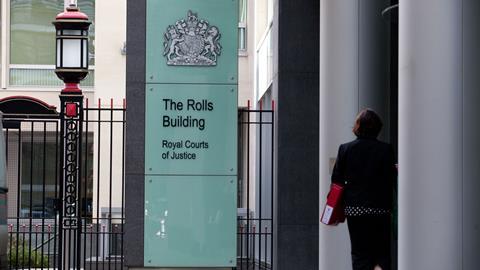Litigation giant Quinn Emanuel Urquhart & Sullivan’s UK arm has had its costs in a case involving a Russian oligarch cut by 30% after it resisted a disclosure application.
Norwich Pharmacal relief, which can order the disclosure of information from a party ‘mixed up’ in wrongdoing, was granted earlier this month and the firm was ordered to disclose the ‘middleman’ presumed to know the identity of an alleged forger of a document in a £229m (US$300m) arbitration. The claimants were ordered to pay the firm’s ‘reasonable costs’ of complying with the order.
Filatona Trading Limited and oligarch Oleg Vladimirovich Deripaska argued that the case was ‘unusual’ and Quinn Emanuel should be ordered to pay 70% of the claimants’ costs as the firm had, the claimants said, ‘been adversarial, unreasonable and has significantly increased the claimants’ costs’ in their approach to the claim. The firm argued the claimants should pay the costs of and occasioned by the application in the usual way.
In Filatona Trading Limited & Anor v Quinn Emanuel Urquhart & Sullivan UK LLP, Mr Justice Calver said the claimants’ complaint that Quinn Emanuel had treated the case ‘as full-blown adversarial litigation, defended with signal vigour’ was ‘not in itself sufficient for [the firm] to lose its costs protection as the innocent party’.
Read more
He added: ‘In the present case I consider that it was reasonable, in all the circumstances, for QE to resist disclosure in principle; certainly it was not unreasonable. There were reasonable points to be made opposing the exercise of the court’s discretion in favour of the claimants.’
Granting a 30% reduction, the judge said the firm’s ‘failure to make urgent enquiries which they should have made to ascertain the authenticity or otherwise of the [alleged forgery]’ did lead to an ‘unnecessary increase in costs’.
He added: ‘It is only fair that the claimants should not have to pay a proportion of QE’s costs which reflects the unnecessary increase in costs caused by QE’s failure to engage with the claimants’ forgery allegations as described in the judgment.
‘In all the circumstances I consider that a fair approach to the order for costs in the present case is to apply a 30% reduction in QE’s costs of resisting the disclosure application. The remainder of QE’s costs, as the party giving disclosure, should (in accordance with the general rule) be paid by the claimants.’




























No comments yet